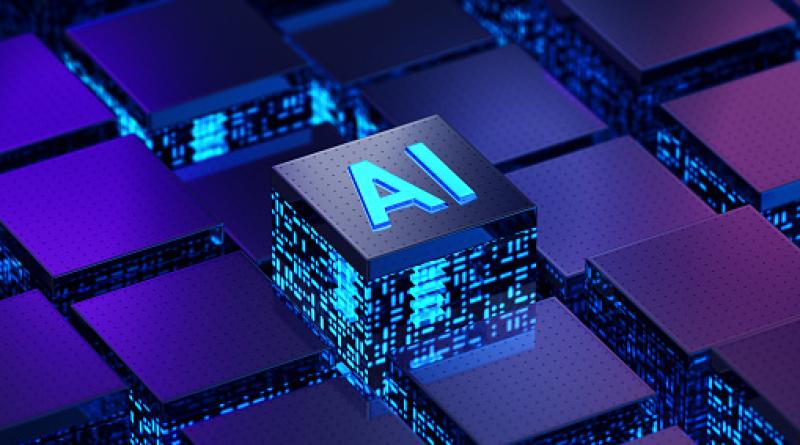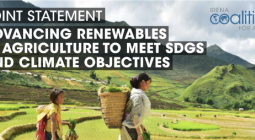Why artificial intelligence is vital in the race to meet the SDGs

Seven years have passed since world leaders met in New York and agreed 17 Sustainable Development Goals (SDGs) to resolve major challenges including poverty, hunger, inequality, climate change and health.
The pandemic undoubtedly diverted attention from some of these issues in the past couple of years. But even before COVID-19, the UN was warning that progress to meet the SDGs was not advancing at the speed or on the scale needed. Meeting them by 2030 will be tough.
Yet I remain optimistic. The pandemic demonstrated like nothing else the power of working collaboratively, across borders, for the benefit of society. It concentrated minds, funding and policy to accelerate research into virus detection, disease treatments, vaccines and manufacturing platforms.
The role of artificial intelligence in accelerating SDGs
It was a truly remarkable effort from the global community to develop effective vaccines within a year of the virus first being detected, and these and other treatments have dramatically reduced the virus’s fatality rate. This can be attributed to the brilliance, perseverance and creativity of scientists across the world. But they were not working alone: Artificial intelligence (AI) also played a key part.
The US company Moderna was among the first to release an effective COVID-19 vaccine. One reason it was able to make this breakthrough so quickly was the use of AI to speed up development. Moderna’s Chief Data and Artificial Intelligence Officer Dave Johnson explains that AI algorithms and robotic automation helped them move from manually producing around 30 mRNAs (a molecule fundamental to the vaccine) each month, to being able to produce around 1,000 a month.
Moderna is also using artificial intelligence to help their mRNA sequence design. Its co-founder Noubar Afeyan recently predicted during a visit to Imperial College London that immune medicine will see “large advances” in the coming years, and we can look forward to a future where medicine is more pre-emptive than reactionary.
“If we can catch disease early and delay it, at a minimum, we could have a lot more impact at a lot less cost,” he said. This is a great example of how AI can free up time for scientists to accelerate discovery and dedicate efforts to solving big challenges.
We are also seeing examples of AI technology driving improvements in other areas of healthcare, such as disease screening for cancer and malaria. Researchers from Google Health, DeepMind, the NHS, Northwestern University and colleagues at Imperial have designed and trained an AI model to spot breast cancer from X-ray images.
The computer algorithm, which was trained using mammography images from almost 29,000 women, was shown to be as effective as human radiologists in spotting cancer. At a time when health services around the world are stretched as they deal with long backlogs of patients following the pandemic, this sort of technology can help ease bottlenecks and improve treatment.
For malaria, a handheld lab-on-a-chip molecular diagnostics systems developed with AI could revolutionize how the disease is detected in remote parts of Africa. The project, which is led by the Digital Diagnostics for Africa Network, brings together collaborators such as MinoHealth AI Labs in Ghana and Imperial College London’s Global Development Hub. This technology could help pave the way for universal health coverage and push us towards achieving SDG3.
There are numerous other examples of how advances in AI could support our understanding of climate change (SDG13), enable our transition to sustainable transport systems (SDG11), and accelerate agri-tech to help farmers end food poverty and malnutrition (SDG2) among many benefits to the other SDGs too.
For example, the Alan Turing Institute, the UK’s national centre for data science and artificial intelligence, are using machine learning to better understand the complex interactions between climate and Arctic sea ice.
With an expanding global population, we face challenges around food demand and production – not only how to reduce malnourishment but the impact on the planet too, such as deforestation, emissions and biodiversity loss. To meet these needs, the use of artificial intelligence in agriculture is growing rapidly and is enabling farmers to enhance crop production, direct machinery to carry out tasks autonomously, and identify pest infestations before they occur.
Smart sensing technology is also helping farmers use fertilizer more effectively and reduce environmental damage. An exciting research project, funded by the EPSRC, Innovate UK and Cytiva, will help growers optimize timing and amount of fertilizer to use on their crops, taking into account factors like the weather and soil condition. This will reduce the expense and damaging effects of over-fertilizing soil.
Developing sustainable and smart transport systems will also be vital as cities and countries look to reduce the impact of air pollution and improve infrastructure. In the last decade, AI has powered a revolution in transport and mobility, from autonomous vehicles to ride-sharing apps and route-planners. AI is also being used to make public transport systems more efficient, reduce traffic congestion and pollution, and improve safety.
Despite its benefits to research and medicine, integrating AI into society and innovation is not always smooth sailing. Recent controversies on facial recognition, automated decision-making and COVID-related tracking, have led to some caution and suspicion. We need to ensure that AI is employed in ways that are trusted, transparent and inclusive. We need to make sure that there is an internationally coordinated, collaborative approach, just as there was in the pandemic.
The World Economic Forum’s Global AI Action Alliance brings together more than 100 leading companies, governments, international organizations, non-profits and academics united in a commitment to maximize AI's societal benefits while minimizing its risks.
It is imperative that we put good processes and practices in place to ensure AI is developed in a positive and ethical way to see it adopted and used to its fullest by citizens and governments.
We must now work together to ensure that artificial intelligence can accelerate progress of the Sustainable Development Goals and help us get back on track to reaching them by 2030.
Alice Gast | https://www.weforum.org/





